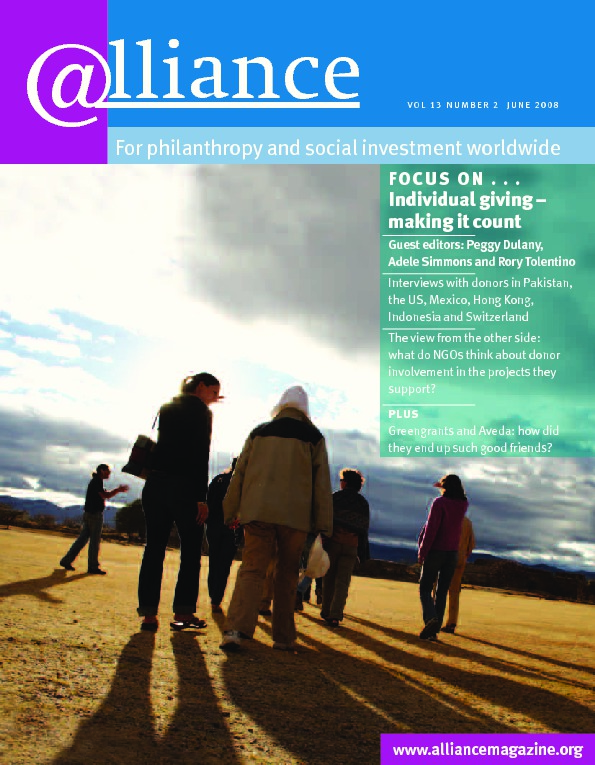Diasporas and Development focuses on the potential contribution of diaspora communities to equitable development of their countries of origin. It offers a series of papers on issues and regional patterns of diaspora philanthropy and undoubtedly adds to the body of knowledge and resources in the field. Diaspora studies are few and far between, and as a researcher, I found this and the earlier volume published by the Global Equity Initiative at Harvard to be an interesting read. As ever, though, a series of conference papers written by diverse authors presents challenges for editors, reviewers and readers.
The editors’ overview sets out the book’s intention: to track diaspora flows and to determine whether or not global equity is an inevitable consequence of diaspora transfers. It also sets out definitions of the concepts of diaspora, philanthropy and equitable development.
The book is then organized in two parts. The first half explores several key themes that relate to diaspora flows: the role of the state in supporting or regulating diaspora engagement; the role of financing and remittances in development; and the risks – political, social and cultural – of diaspora engagement. The second half examines patterns of diaspora giving in regions as diverse as Asia, Africa, the Caribbean and Central America.
However, while the book starts on a promising note with the key themes of the role of the state and role of financing, I thought the data and information pertaining to remittances a bit misplaced in the context of the volume, given that figures for remittances are not necessarily a reflection of pure diaspora giving for philanthropic practices. The chapter, ‘The Janus Face of Diasporas’, which examines the risk elements, presents an interesting new spin and hypothesis, but whether it adds real value to the discussion on equitable development is another question.
The regional chapters – Adil Najam’s ‘Diaspora Philanthropy to Asia’ and Manuel Orozco’s ‘Central American Diasporas and Home Town Associations’ – are well researched, focused and articulated. Adil’s candid analysis and views of issues faced by Pakistanis in the US and institutions back home in Pakistan are valuable to researcher and practitioner alike. Similarly, Manuel Orozco provides the reader with wonderful insights on home town associations. In fact, he and Adil are among the few contributors who reflect on development issues in the home country, thereby helping the reader to relate giving to need.
The volume offers the reader a snapshot of diasporas of different regions. However, in attempting to engage with many different dialogues and themes, it often leaves the key questions unanswered or the answers come across as disparate and unrelated.
That said, the book will be useful to academics and practitioners reviewing the role of the state and home town associations or those involved in studying migration and remittances. Mark Sidel’s chapter on the role of the state, by far the best in the volume, is focused and organized and provides academic and practitioner alike with an in-depth understanding of legislation in major recipient countries and the changing context.
The editors and indeed the individual authors have made an attempt to capture trends in diaspora giving for development. Few have attempted, however, to provide the reader with coverage of the major equity issues facing each of the regions they have focused on. An assessment of regions where diaspora giving has indeed addressed issues of equity would also have helped the general reader.
Diaspora philanthropy is emerging as a legitimate field of academic study and a prospective field of practice. This book adds to the sum of knowledge especially for region-specific practitioners, academics and policymakers. For civil society in some of these regions, the risks are definitely worth reflecting on. The book could also be of interest to diaspora investors seeking ways to invest their philanthropic dollars in ways that promote greater equity.
As a diaspora researcher and philanthropy practitioner, this volume reiterated for me the critical need to invest in significant research projects in the field. This includes the study of institutions and mechanisms that have been established to promote diaspora giving and impact assessment studies that will highlight for both the policymaker and the diaspora member alike the future and potential of transnational giving.
Priya Viswanath is Chief Executive, Charities Aid Foundation India. CAF India is part of the CAF International network. Email priya.viswanath@cafindia.org
Diasporas and Development – Barbara J Merz, Lincoln C Chen & Peter F Geithner (eds) Harvard University Press $19.95
ISBN 9780674024557
To order: http://www.hup.harvard.edu





Comments (0)